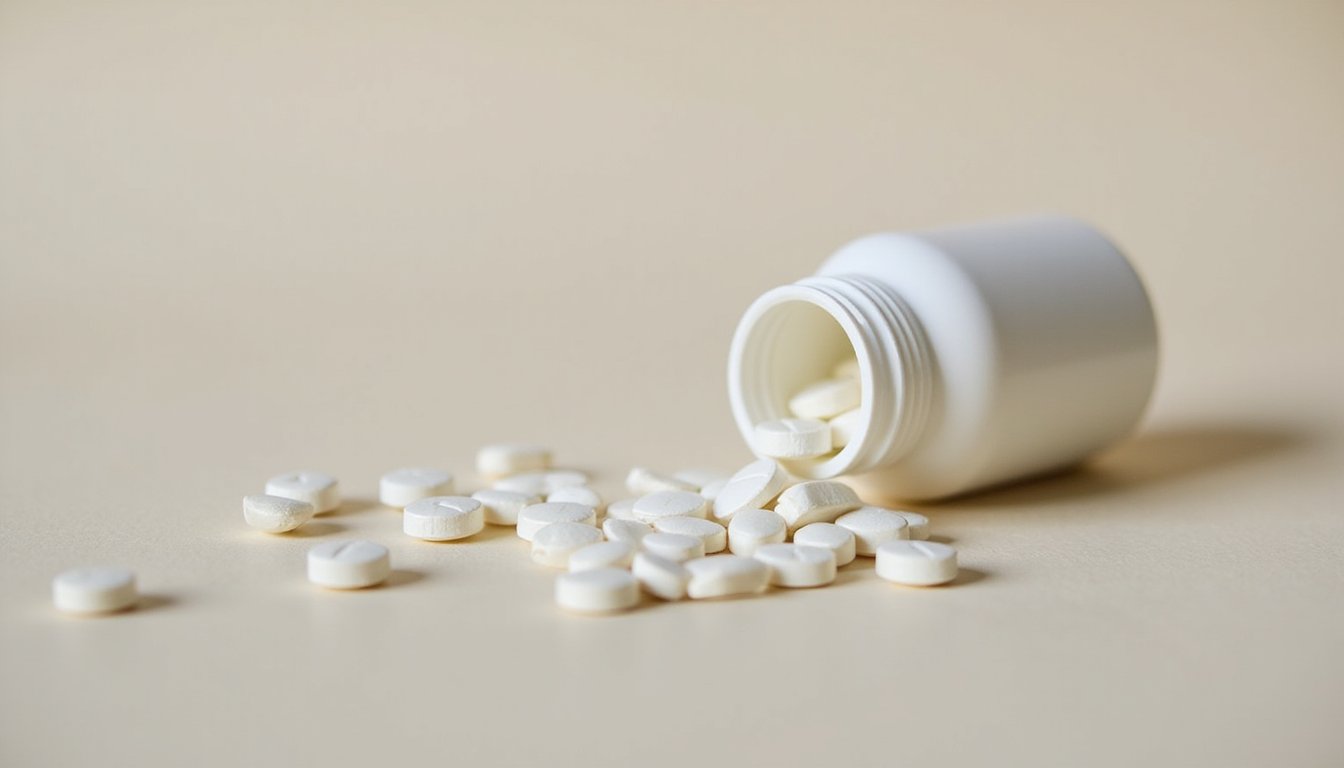Medications for Depression and How They Work
Major depressive disorder (MDD), also known as clinical or unipolar depression, is a mood disorder that results in a constant sense of melancholy and boredom. It produces severe symptoms that impact your mood, cognition, and ability to carry out daily activities like sleeping, eating, or working. The signs and symptoms of depression must last at least two weeks for a diagnosis.
Bipolar depression involves mood swings that fluctuate between depressive lows and manic highs. To be considered a bipolar episode, the mania or depression must continue unbroken for at least seven days.
Untreated manic episodes generally last two or three months, and untreated MDD can go on for six months or more. Although depression can never be cured, it can be treated effectively with medication, therapy, or a combination of the two.
Who Is at Risk?
Anyone can experience depression at any moment, but certain populations are more vulnerable than others.
More women than men are diagnosed with depression. Hormonal changes in their reproductive years are part of the reason for this. There are postpartum and perinatal subtypes of clinical depression, for example. Another subtype is premenstrual dysphoric disorder (PMDD), a severe condition that interferes with a girl’s or woman’s daily routine. It involves depression, anxiety, and mood swings during the week before menstruation.
Environmental stresses affecting women more frequently than men can also contribute to depression. These include needing to juggle a job with raising children, especially if a woman is a single mother.
There are other subtypes of depression that differ somewhat or that may manifest in particular situations. These include depressive psychosis, seasonal affective disorder (SAD), and situational depression.
Symptoms of Major Depressive Disorder
Clinicians use the fifth edition of the Diagnostic and Statistical Manual of Mental Disorders (DSM-5), published by the American Psychiatric Association (APA), to diagnose depression. If you exhibit five or more of these signs for at least two weeks, you may have MDD:
- Sadness, tearfulness, emptiness, hopelessness
- Loss of interest in things you used to enjoy, such as socializing, sex, hobbies, or sports
- Anger, irritability, or frustration that’s out of proportion to the situation
- Sleep disturbances like insomnia or sleeping too much
- Weariness and lack of energy that makes every task seem like too much of an effort
- Changes in appetite that may result in weight loss or gain
- Anxiety, agitation, or restlessness
- Feelings of worthlessness or guilt
- Fixating on past failures
- Slowed thinking, speaking, or body movements
- Trouble concentrating, making decisions, or remembering things
- Unexplained physical problems like back pain or headaches
- Frequent or recurring thoughts of death, suicidal thoughts, or suicide attempts
Additional Symptoms of Bipolar Disorder
People with bipolar disorder have both highs and lows. Their periods of mania can include:
- Higher than normal energy
- Feeling elated, “high,” or euphoric
- Reduced sleep
- Irritability
- Racing thoughts and speech
- Grandiose thinking
- Increased self-esteem and confidence
- Unusual, risky, or self-destructive behavior
What Causes Depression?
Here are some of the numerous factors that raise the likelihood of developing depression:
- Certain medications: Corticosteroids, the antiviral interferon-alpha, and the acne medication isotretinoin can raise your chance of developing depression.
- Age: The risk of depression is higher among seniors, especially those who live alone and lack social support.
- Genes: A family history of depression might make you more vulnerable, especially if it involves a close relative like a parent or sibling.
- Drug use: The prevalence of clinical depression among those who struggle with drug abuse is close to 30%.
- Grieving: Sadness following the death or other loss of a loved one raises the risk of depression.
- Severe illnesses: Sometimes a severe disease coexists with depression, and other medical conditions may also act as triggers.
- Relationship problems: Conflicts with family members or friends might lead to depression in someone biologically susceptible to it.
- Abuse: You may be more susceptible to depression later in life if you experienced physical, sexual, or emotional abuse in your youth.
- Happy events: Surprisingly, even “happy” events like graduation, getting married, or achieving a big life goal can lead to depression. Society tells you that you should be happy, so you may feel something’s wrong with you if you’re not.
What Are Antidepressants?
Prescription drugs called antidepressants are used to treat depression, a widespread, significant medical condition that impacts not only your moods but also your overall mental health.
Types of Depression Medication
Antidepressants come in a wide range of varieties. They all operate differently. Your symptoms and additional medical conditions will determine which antidepressant is most effective for you. Read the medication guide that comes with the prescription, and ask your doctor and pharmacist about its most typical side effects.
Doctors usually prescribe the newer antidepressants first since they generally have fewer adverse effects than older ones. Most modern depression medications fall into one of these three categories:
- Selective serotonin reuptake inhibitors (SSRIs)
- Serotonin and norepinephrine reuptake inhibitors (SNRIs)
- Atypical antidepressants, which are newer medications that don’t fit into the other groups
If these are ineffective, your doctor could prescribe one of the more traditional antidepressants. For some people, the advantages may exceed the drawbacks, even though these antidepressants may have more severe side effects.
- Monoamine Oxidase Inhibitors (MAOIs)
- Tricyclic Antidepressants
- Tetracyclic Antidepressants
Selective Serotonin Reuptake Inhibitors (SSRIs)
Since SSRIs have fewer adverse effects than most other types of antidepressants, they are frequently the first-choice medications for depression. SSRIs treat depression by increasing levels of serotonin in the brain.
Neurotransmitters include serotonin (a messenger chemical that carries signals between nerve cells in the brain). The effects on mood, emotion, and sleep are positive. Typically, the nerve cells reabsorb serotonin once it has sent a message (known as “reuptake”). By preventing (or “inhibiting”) reuptake, SSRIs increase the serotonin available to transmit more signals between neighboring nerve cells.
How SSRIs Are Administered
SSRIs are frequently given as tablets. You will begin by taking the smallest dose your doctor deems effective for reducing your symptoms. You may need to take the medication for two to four weeks before you notice an effect. You may have minor side effects, but you must continue taking the medication. Usually, these symptoms disappear rapidly.
Consult your psychiatrist or another mental health professional if you’ve been taking an SSRI for four to six weeks and haven’t noticed any benefits. They could advise increasing your dosage or switching to another medication. A course of SSRI therapy typically lasts for at least six months after you start to feel better.
These SSRIs have received approval from the Food and Drug Administration (FDA) to treat depression:
- Citalopram (Celexa)
- Sertraline (Zoloft)
- Escitalopram (Lexapro)
- Paroxetine (Paxil, Pexeva)
- Fluoxetine (Prozac)
Common side effects of SSRIs include:
- Diarrhea
- Nausea
- Loss of libido
- Erectile dysfunction
- Impaired vision
- Dizziness
Serotonin and Norepinephrine Reuptake Inhibitors (SNRIs)
Depression can also be successfully treated using a family of drugs known as serotonin and norepinephrine reuptake inhibitors (SNRIs). SNRIs occasionally treat other conditions, including anxiety and chronic pain, particularly nerve pain. If you experience both chronic pain and depression, SNRIs could be beneficial.
By changing the neurotransmitters that serve as a means of communication between brain cells, SNRIs reduce depression. SNRIs eventually alter the chemistry of the brain and the communication between circuits of brain nerve cells that control mood. Serotonin and norepinephrine are brain neurotransmitters that cannot be reabsorbed by SNRIs.
These SNRIs have received approval from the FDA to treat depression:
- Venlafaxine (Effexor XR), also approved to treat certain anxiety disorders and panic disorder
- Duloxetine (Cymbalta), also approved to treat anxiety and certain types of chronic pain
- Desvenlafaxine (Pristiq)
- Levomilnacipran (Fetzima)
Side effects of SNRIs include:
- Agitation
- Anxiety
- Trembling
- Nausea
- Dizziness
- Abdominal pain
- Indigestion
- Reduced appetite
- Constipation
- Diarrhea
- Vertigo
- Fatigue
- Headache
- Low libido
Atypical Antidepressants
Atypical antidepressants work by altering neurotransmitters, the chemical messengers that connect brain cells. Atypical antidepressants, like other antidepressants, treat depression by eventually affecting changes in brain chemistry and communication in brain nerve cell circuits known to influence mood.
Atypical antidepressants alter the levels of one or more neurotransmitters, such as dopamine, serotonin, or norepinephrine. These atypical antidepressants have received approval from the FDA to treat depression:
- Bupropion (Wellbutrin SR, Wellbutrin XL, others)
- Mirtazapine (Remeron)
- Nefazodone
- Trazodone
- Vilazodone (Viibryd)
- Vortioxetine (Trintellix)
- Esketamine (Spravato)
Side effects of atypical antidepressants include:
- Headache
- Dry mouth
- Nausea
- Trouble sleeping
- Anxiety
- Dizziness
- Fatigue
- Weight loss
- Constipation
- Restlessness
- Congestion
Monoamine Oxidase Inhibitors (MAOIs)
Monoamine oxidase inhibitors (MAOIs) formed the original class of antidepressants. Although they work well, antidepressants with fewer side effects have mostly taken their place.
Because MAOIs can induce dangerously high blood pressure when combined with particular foods or drugs, using them may necessitate dietary restrictions and the avoidance of specific other medications. Despite their side effects, these drugs are still suitable for some people. In certain instances, they address depression when other therapies haven’t worked.
These Monoamine Oxidase Inhibitors (MAOIs) have received approval from the FDA to treat depression:
- Selegiline (Emsam)
- Isocarboxazid (Marplan)
- Tranylcypromine (Parnate)
- Phenelzine (Nardil)
Side effects of MAOIs include:
- Dizziness or lightheadedness
- Dry mouth
- Nausea, diarrhea, or constipation
- Reduced sexual desire or difficulty reaching orgasm
- Drowsiness
- Insomnia
- Headaches
- Involuntary muscle jerks
- Weight gain
- Difficulty starting a urine flow
- Low blood pressure
- Paresthesia (prickling or tingling sensation in the skin)
- Muscle cramps
Tricyclic and Tetracyclic Antidepressants
Depending on whether their chemical structure includes three or four rings, these antidepressants are known as tricyclic or tetracyclic. Cyclical antidepressants raise the neurotransmitters serotonin and norepinephrine levels in the brain by inhibiting their reabsorption (reuptake).
To treat depression, cyclic antidepressants eventually alter the chemistry of the brain and the communication across brain circuits that control mood. Cyclical antidepressants can have various adverse side effects since they change other chemical messengers.
These tricyclic and tetracyclic antidepressants have received approval from the FDA to treat depression:
- Desipramine (Norpramin)
- Amoxapine
- Amitriptyline
- Protriptyline
- Doxepin
- Nortriptyline (Pamelor)
- Trimipramine
- Imipramine (Tofranil)
Side effects of tricyclic and tetracyclic antidepressants include:
- Drowsiness
- Distorted vision
- Constipation
- Dry mouth
- Weight loss
- Increased appetite
- Drop in blood pressure
- Retention of urine
- Excessive perspiration
- Sexual issues
Antidepressants and Suicide
Antidepressants are safe for the most part. However, the FDA mandates that all antidepressants have black box warnings, the strictest cautions for prescriptions. When using antidepressants, it is possible in the first few weeks, or when the dose is altered, that children, teens, and adults under 25 may have an increased risk of suicidal thoughts or behavior.
It’s important to keep a careful eye on anyone taking an antidepressant for signs of worsening depression or strange behavior. Get in touch with a doctor or seek emergency assistance immediately if you or someone you know is having suicidal thoughts while taking an antidepressant.
The good news is that by elevating mood, antidepressants can lower the risk of suicide over time.
Choosing the Right Antidepressant
It is up to you and a mental health practitioner to decide on the best antidepressant for you. The best option for you and your lifestyle will be determined after considering your symptoms, medical history, and other factors.
Your doctor will ask you several questions before recommending a particular antidepressant. These may inquire into your experience with antidepressants and how well they worked for you or other family members who have had depression. The answers might predict your reaction to the same medication or group of medicines.
Stopping an Antidepressant or Changing Its Dose
The same advice holds when you want to stop a medication or modify its dose; you should begin carefully. Your chance of experiencing another depressive episode or withdrawal symptoms might significantly rise if your dose changes abruptly.
If you stop taking an antidepressant suddenly, especially if you’ve been using the medication for longer than four to six weeks, you might experience antidepressant withdrawal, also known as antidepressant discontinuation syndrome. It normally lasts a few weeks.
To determine if this is the proper time to stop or step down a medication, ask yourself how you’re feeling overall, whether your level of stress is manageable, and whether your family and friends keep you feeling supported. If you wish to quit taking an antidepressant or alter its dose, it’s crucial to talk to your physician, who will create a treatment plan that is appropriate for you.






